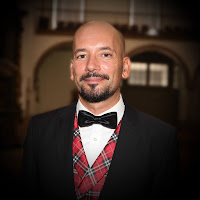Presenter: Anna Wiehl
Registration Number: 060
Institution: University of Bayreuth, Germany
Abstract: This presentation focuses on "new narratives" dealing with the global issue of migration, which, however, stands only as a paradigm of other forms of systemic injustice and discrimination. Taking paradigmatic projects—among others Clouds over Sidra (2015) and This Room (2017)—I will set off to look behind the promise of interactive, immersive narratives to let users “walk in someone else’s shoes.”
I will explore in how far the specific affordances through which the documentary experience is enabled affect the engagement with content and the potential transformative impact the producers are aiming at. Are we dealing with an exploitive gaze, a form of narcissistic spectatorship, are we drawn into a “human rights spectacle,” or do new forms of narrative enable response-able witnessing? And which role do empathy, immersion, presence, and co-presence play in this context?
The theoretical framework of the contribution brings together
- recent theories of VR non-fiction (among others Rose 2018; 2019, Nash 2018, Sutherland 2015, Bailenson 2018) which draw on the tradition of documentary theory and approaches to interactive storytelling,
- findings in neurosciences and social psychology (e.g. Bertrand et al. 2018, Schutte & Stilinović 2017, Farmer 2019), especially as to concepts of immersion, empathy and presence in VR environments,
- and sets them into relation with media-ethical considerations coming from critical theory and critical whiteness studies. The background of the presentation is the early hype around VR non-fiction as "the ultimate empathy machine" (Milk 2015). As such, it was only consistent that NGOs embrace the technology to raise awareness for their causes. However, more recent discourses question the power of VR to achieve social change—not only as the depiction of marginalized groups remains stuck in stereotypes, but especially as the regimes of gaze are accompanied by moral risks—mainly “improper distance” (Nash 2018). Through the uncritical transportation of the “I”/“eye” of the spectator, VR brings forth problematic socio-cultural, socio-political as well as media-ethical constellations: first of all, it runs the risk of dehistoricizing and depoliticizing complex issues, such as migration and race issues; also, the regimes of gaze realized in many configurations potentially reinscribing hegemonic, colonial points-of-view; foremost, however, uncritical exploitation of the affordances of VR invites the spectators to impose their truth over the actual experiences of “others,” colonizing their feelings.
These challenges in view, I suggest a form of critical estrangement and to the opportunity of new narratives to induce not primarily immersion but to oscillate between immersion and dis-immersion, blurring documentary factuality and artistic fictionality, arguing that the potential of new narratives does not consist in its amplification of visual illusion and immediate affective response but rather in its ability to model a different concept of subjectivity and inter-subjectivity altogether, questioning established regimes of gaze and perspective on the “self” in relation to others.
Bio: Anna Wiehl has been a research fellow with i-docs at the Digital Cultures Research Centre, Bristol, UK and a lecturer and research assistant at the University of Bayreuth, Germany. Her transdisciplinary research focuses on digital media cultures, documentary practices and interactive storytelling. Apart from her academic career, she has worked among others for the transmedia broadcasters ARTE and Bayerischer Rundfunk. From 2017 to 2019, Anna directed a research project on interactive documentary and finished her habilitation project The “New” Documentary Nexus. Networked|Networking in interactive assemblages. Currently, she is leading a BMBF research network on The Documentary and the Digital.



